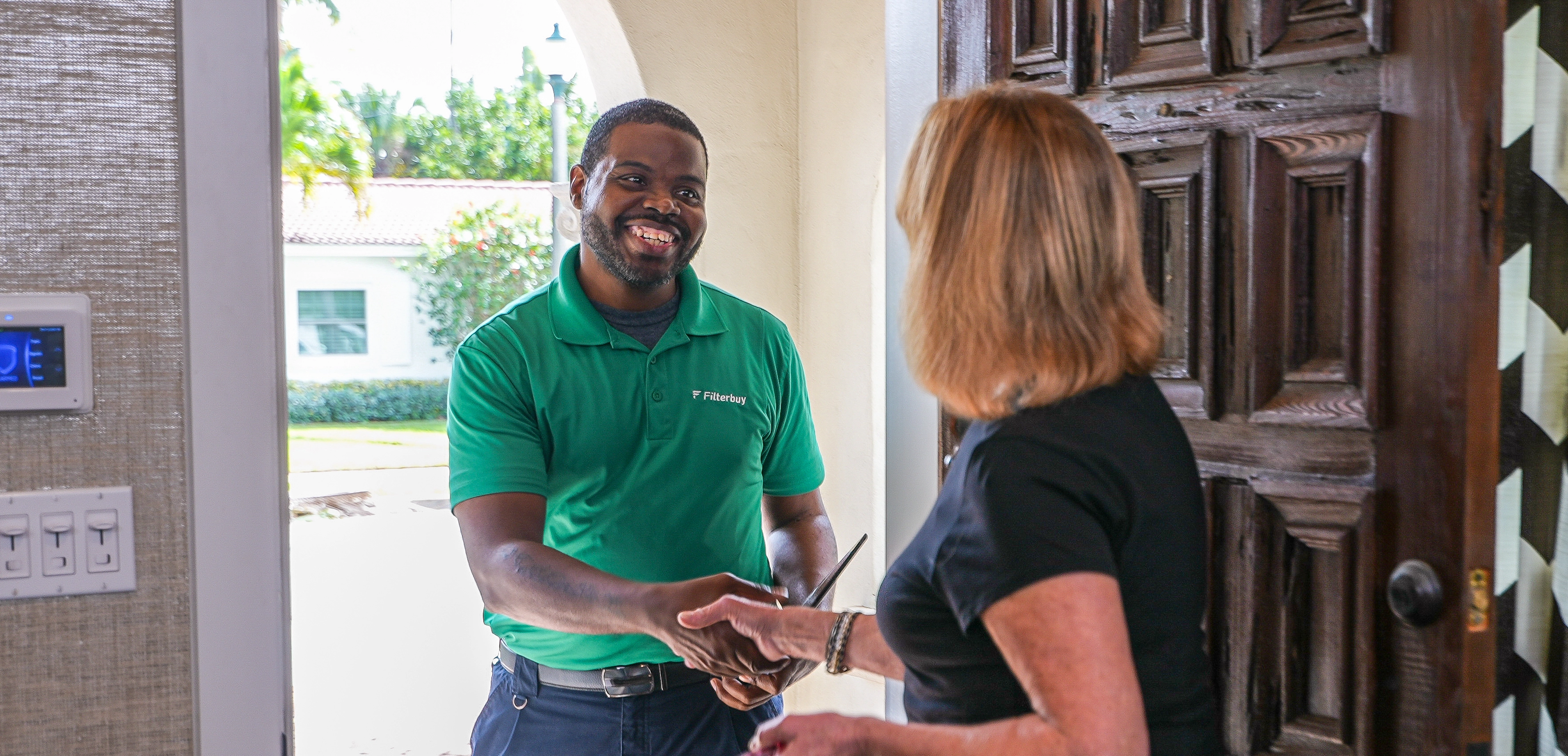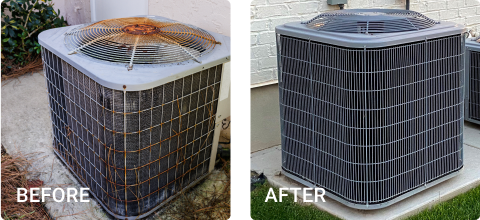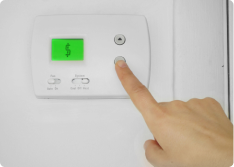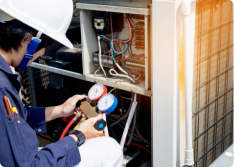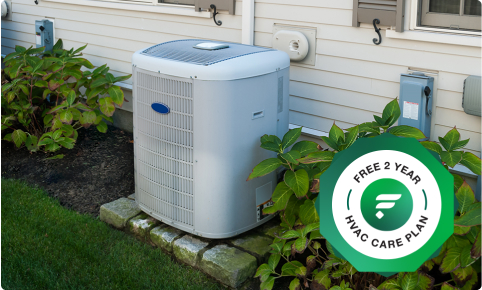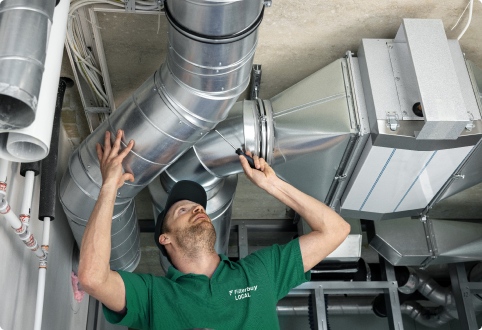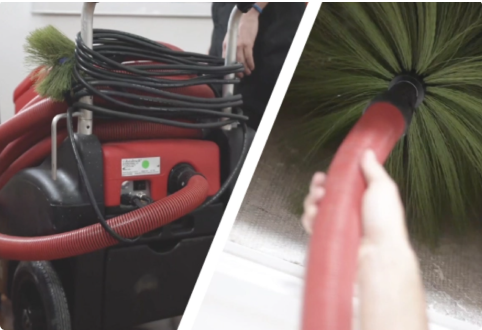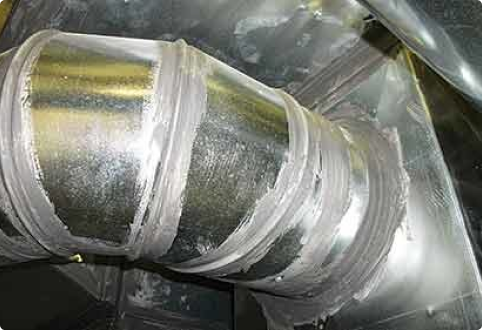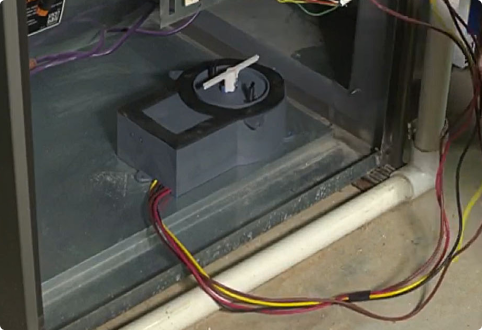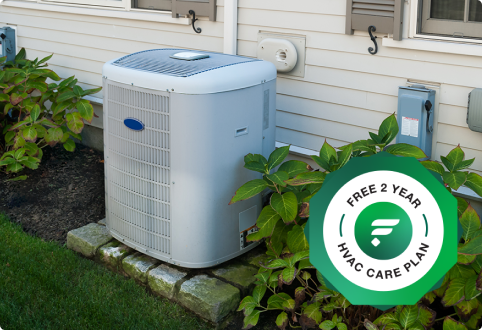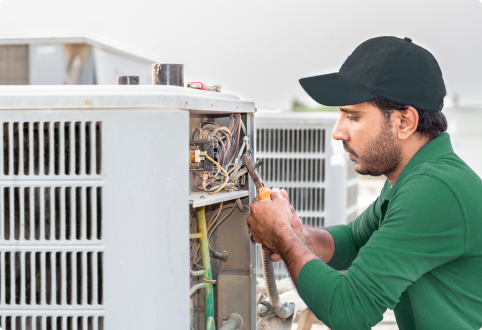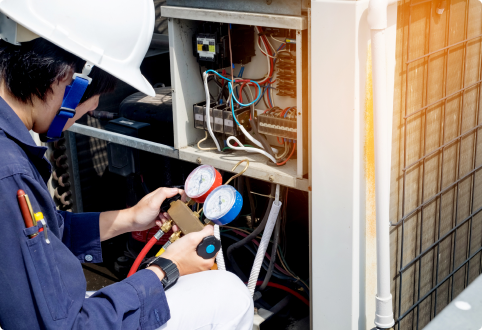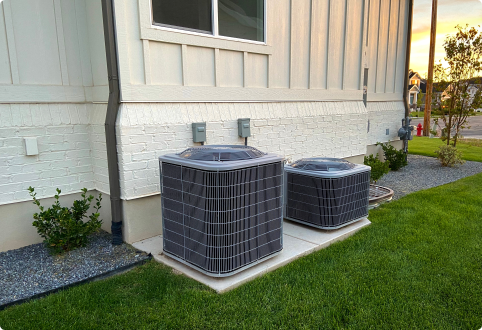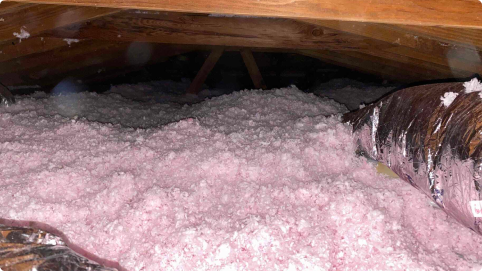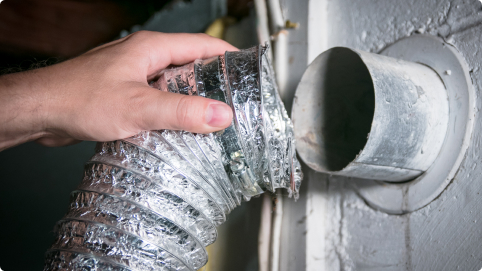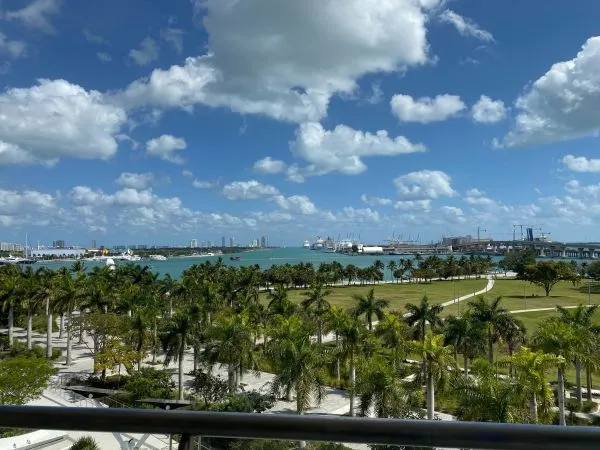Welcome to Filterbuy HVAC Solutions, the best HVAC system replacement service company proudly serving in and near the greater Royal Palm Beach, FL area. Please let us know how we can help solve your Royal Palm Beach HVAC system replacement needs with professional, affordable, and fast residential and commercial HVAC services by getting a free online quote or by giving our friendly HVAC specialists a call. We look forward to hearing from you!
HVAC Replacement in Royal Palm Beach FL
In Royal Palm Beach, FL, HVAC replacement is a critical decision that necessitates a careful analysis of various factors. This includes the age and efficiency of your current system, the expertise of local service providers, and the cost-to-benefit ratio of potential new systems. It's crucial to consider both upfront and long-term costs, as well as the impact on your property's comfort and value. Will a new, energy-efficient model truly yield significant savings? How can you ensure a smooth installation process? These questions beg further exploration.
Key Takeaways
-Consider local HVAC providers in Royal Palm Beach, FL, evaluating their experience, licensing, and customer reviews.
-Evaluate the cost factors for HVAC replacement, including energy efficiency, SEER rating, and installation costs.
-Decide between central HVAC systems and ductless mini-split systems, considering your specific needs and home setup.
-Prepare for HVAC installation by coordinating the installation date, understanding warranty details, and clearing the installation area.
-Maintain your new HVAC system with regular inspections, cleaning and replacing filters, and checking thermostat settings for optimal performance.
Recognizing Signs of HVAC Failure
In the realm of HVAC maintenance, understanding the warning signs of impending system failure is an invaluable skill for homeowners in Royal Palm Beach, FL. Recognizing these failure symptoms early can prevent unnecessary discomfort and may considerably reduce repair costs.
The first symptom homeowners should be aware of is inconsistent airflow. This can be indicated by a noticeable lack of cool air or fluctuating temperatures throughout the home. Similarly, unusual noises or smells from the HVAC system are clear signals of potential issues. Rattling, buzzing, or pungent odors may point to mechanical issues or even electrical problems.
Another key indicator of system malfunction is a sudden spike in energy bills. If your HVAC system is working harder than usual due to a fault, it will consume more energy, resulting in higher utility costs. Lastly, frequent cycling, your system turning on and off rapidly, may also signify a serious problem.
Understanding HVAC Lifespan
The lifespan of an HVAC system is influenced by a variety of factors. These factors can affect the longevity of the system, as well as its performance and efficiency. To ensure the best return on your investment, understanding these factors and how to extend the life of your HVAC system is crucial.
Factors Affecting HVAC Lifespan
Several factors can significantly influence the lifespan of your HVAC system, necessitating a comprehensive understanding of optimal maintenance and longevity. One key factor is HVAC efficiency, which is affected by the system's design, installation, and regular servicing. A well-designed and properly installed system operates more efficiently, resulting in less wear and tear and a longer lifespan.
Seasonal impacts also play a crucial role. In areas like Royal Palm Beach, FL, HVAC systems are often subjected to extreme heat and humidity, accelerating deterioration and reducing their lifespan. Additionally, sudden weather changes can strain the system, causing premature failure. Understanding these factors can inform better HVAC practices, promote system longevity, and ultimately influence the timing and frequency of HVAC replacements.
Extending Your HVAC's Life
A proper understanding of your HVAC system's lifespan can significantly aid in extending its life, ensuring optimal performance, and reducing frequent repair or replacement costs. Implementing preventative measures, such as regular maintenance, can identify potential issues early and address them before they escalate, thus prolonging the system's life. This includes cleaning and replacing filters, scheduling routine professional inspections, and ensuring the system is free from dust and debris.
Seasonal adjustments are also essential in extending your HVAC's life. Adjusting the thermostat settings according to the changing seasons and reducing system load during peak times can drastically improve the system's efficiency and lifespan. By adhering to these simple measures, you can enjoy a more durable and efficient HVAC system for many years.
Importance of Regular Maintenance
Understanding the importance of regular HVAC maintenance is crucial to prolong the system's lifespan and improve its overall performance. Maintenance schedules and seasonal check-ups are key elements in keeping an HVAC system running efficiently.
Maintaining a regular maintenance schedule not only ensures a longer lifespan for your HVAC system but also prevents potential issues from escalating into major problems. These schedules involve routine inspections, cleaning, and minor repairs, which are necessary to keep the system in top-notch condition.
Seasonal check-ups are another vital aspect of HVAC maintenance. These check-ups are particularly beneficial in preparing your system for heavy usage during extreme weather conditions. In Royal Palm Beach, FL, where the temperature varies significantly, a spring check-up ensures your air conditioning is ready for the hot summer, while a fall check-up prepares your heating system for the chilly winter.
Deciding on HVAC Replacement
Despite the best efforts in maintaining an HVAC system, there comes a point when replacement becomes a more feasible and economical option than continual repairs. This decision is often influenced by several factors, key among them being energy efficiency considerations and replacement timelines.
Energy efficiency considerations play a critical role in deciding on HVAC replacement. As technology advances, newer models are designed to consume less energy while providing optimal comfort. A system that has been in operation for an extended period may not be as efficient, leading to higher energy bills. Replacing such a system with a more energy-efficient unit could lead to significant savings in the long run.
Replacement timelines are equally important. Regular maintenance can extend the life of an HVAC system, but it will not last forever. The general rule of thumb is to consider replacement if the system is over 10 years old or if the repair costs are approaching 50% of the cost of a new unit. However, every situation is unique, and it's essential to weigh the costs and benefits in light of your specific circumstances when deciding whether to replace your HVAC system.
Evaluating Local HVAC Providers
So how does one go about evaluating local HVAC providers in Royal Palm Beach, FL?
The key is to follow a set provider selection criteria that ensures you choose an HVAC contractor who is reliable, efficient, and capable of meeting your specific needs.
Here's a 4-point guide to assist you in this process:
1. Licensing and Insurance: Ensure the HVAC provider is licensed and insured to operate in Florida. This protects you from any liabilities during the installation process.
2. Experience: Check the provider's experience in HVAC replacements. An experienced provider is more likely to offer high-quality services.
3. Customer Reviews: Look up customer reviews or ask for references. This gives you a sense of the provider's reputation and the quality of their work.
4. Local HVAC innovations: Evaluate the provider's ability to offer the latest HVAC innovations. This can include energy-efficient systems or smart thermostats, which can significantly improve your HVAC system's efficiency and longevity.
Cost Factors for HVAC Replacement
When considering an HVAC replacement in Royal Palm Beach, FL, it's crucial to account for several cost factors that can significantly influence the overall expense of the project.
One of these factors is the energy efficiency of the new unit. A highly energy-efficient HVAC system, while initially more expensive, can lead to substantial savings on energy bills in the long run. The unit's Seasonal Energy Efficiency Ratio (SEER) rating will determine its efficiency; the higher the SEER rating, the more energy-efficient the system.
Another vital cost factor is the installation process. This can include costs for removing the old unit, preparing the installation site, and the labor involved in setting up the new system. The complexity of the installation and the rates of the HVAC contractor will significantly affect this cost.
Lastly, financing options can also affect the total cost. Many HVAC companies offer financing plans that allow homeowners to make monthly payments over a specified period. Although financing can make the project more affordable upfront, interest charges can add to the total cost over time.
Understanding these cost factors can guide homeowners in making a well-informed decision about their HVAC replacement project.
Types of HVAC Systems Available
In the realm of HVAC replacement, there are several system types that homeowners in Royal Palm Beach, FL can consider. Two such options include Central HVAC Systems and Ductless Mini-Split Systems. Each system type offers distinct advantages and limitations, which will be explored in the following sections.
Central HVAC Systems
Among the various types of HVAC systems available, central HVAC systems have emerged as a popular choice due to their efficiency and comprehensive coverage. Central HVAC systems are prominent for their energy efficiency and system sizing that are tailored to the specific needs of your home or office.
1. Energy Efficiency: Central HVAC systems optimize energy usage, reducing your utility bills and environmental footprint.
2. System Sizing: The size of the central HVAC system is crucial for optimal performance. Improperly sized systems can lead to inefficiency and increased operational costs.
3. Comprehensive Coverage: These systems provide uniform temperature control across all rooms.
4. Maintenance: Regular maintenance of these systems ensures long-term efficiency and reliability, thereby minimizing potential downtime.
Ductless Mini-Split Systems
Have you considered the advantages of a Ductless Mini-Split System?
These systems, as the name suggests, are split into two parts: an outdoor unit and an indoor unit. Mini split advantages include energy efficiency due to the absence of ductwork, resulting in less energy loss. They also provide greater flexibility in terms of installation logistics, as they can be mounted on the wall, suspended from the ceiling, or installed on the floor. Ductless Mini-Split Systems are perfect for homes in Royal Palm Beach, FL that do not have existing ductwork or for additional rooms where extending ductwork is not feasible. Make the switch to a Ductless Mini-Split System and experience the benefits today.
Preparing for HVAC Installation
Before the HVAC installation process begins in your Royal Palm Beach, FL home, it is essential to properly prepare to ensure a smooth and efficient procedure. This preparation involves a couple of vital steps, which include installation scheduling and understanding warranty details.
Installation scheduling involves setting a convenient date for the HVAC installation. It is crucial to plan and ensure that the chosen date does not conflict with other activities in your schedule.
Understanding the warranty details is equally important. A warranty is a guarantee offered by the manufacturer, ensuring that the product will work as described for a certain period. Knowing the specifics of your HVAC system warranty can save you from unexpected costs should anything go wrong.
Here are four key steps to consider when preparing for your HVAC installation:
1. Coordinate with the installation company to schedule a date for the installation.
2. Understand the warranty terms and duration for your new HVAC system.
3. Clear the installation area of any obstacles that might hinder the installation process.
4. Ensure that all necessary permits and permissions have been secured for the installation.
Navigating Installation Day
Once you've prepared for your HVAC installation, the next step is successfully navigating the actual installation day in your Royal Palm Beach, FL home. Understanding the installation timeline is critical to ensure a smooth process. Typically, the installation of a new HVAC system can take anywhere from a few hours to a couple of days, depending on the complexity of the system and the layout of your home.
Disruption management is another key aspect of navigating the installation day. Although HVAC contractors endeavor to minimize disruption, some level of inconvenience is inevitable. You might experience temporary loss of climate control, increased noise levels, and restricted access to certain areas of your home. To manage this, consider planning activities that will keep you and your family occupied and away from the work area.
Communicating effectively with the installation team is also essential. This will help you stay updated about the progress, manage disruptions effectively, and ensure that the installation is completed as per the agreed timeline. Remember, preparation and good communication are the keys to a successful HVAC installation day.
Maintaining Your New HVAC System
After the successful installation of your new HVAC system, diligent maintenance is crucial to ensure optimal performance and longevity. It's not only about prolonging the life of the system but also about the system's efficiency and the air quality in your home.
To maintain your new HVAC system, here are four important steps:
1. Regular Inspections: Schedule a professional inspection at least once a year. Routine check-ups can identify minor issues before they become major problems, thus maintaining system efficiency.
2. Clean and Replace Filters: Dirty filters can reduce system efficiency and air quality. Change or clean them regularly, depending on the type of filter your system uses.
3. Clear Debris: Keep the outdoor unit clear of leaves, dirt, and other debris. This helps in the smooth functioning of the system and prevents unnecessary strain.
4. Check Thermostat Settings: Ensure that your thermostat is set correctly. Incorrect settings can cause your system to work harder than necessary, reducing its efficiency and lifespan.
Frequently Asked Questions
How Much Does It Cost to Replace an HVAC Unit in Florida?
The cost to replace an HVAC unit in Florida can range from $5,000 to $10,000. This price can vary depending on the specific model you choose and the size of your home.
How Often Should a Home Have Its HVAC System Replaced?
Most HVAC systems should be replaced every 10 to 15 years. This can depend on how often the system is used and how well it is maintained.
Is There a Best Time to Replace My HVAC System?
The best time to replace your HVAC system is during the off-peak seasons of spring and fall. During these times, HVAC companies are usually less busy and you may get a better deal.
What Is the Most Common HVAC System in Florida?
The most common HVAC system in Florida is a central air conditioner due to the hot and humid climate. This system cools and dehumidifies the air inside the home.
What Time of Year Is Cheapest to Replace HVAC?
The cheapest time of year to replace your HVAC system is typically during the spring or fall. This is when demand for HVAC services is lowest, and you may be able to negotiate a better price.
Should You Replace 20-Year-Old HVAC?
If your HVAC system is 20 years old, it is typically recommended that you replace it. Older systems are often less efficient and can be more expensive to maintain.
What Is the HVAC Rule of 5000?
The HVAC rule of 5000 states that if the cost of repairs multiplied by the age of the unit is more than $5000, then it's better to replace the unit.
How Long Does It Take to Replace an Entire HVAC System?
It typically takes one to three days to replace an entire HVAC system. This can vary depending on the complexity of the installation and the specific unit being installed.
How Do You Know When Your HVAC Is Going Bad?
Signs that your HVAC is going bad include inconsistent temperatures, strange noises, high energy bills, and frequent repairs.
How to Save Money on HVAC Installation?
To save money on HVAC installation, consider purchasing your system during off-peak seasons, getting multiple quotes, and looking for energy-efficient models that may qualify for rebates.
How Do You Know If You Need a New HVAC System?
If your HVAC system is frequently breaking down, not keeping your home comfortable, or causing your energy bills to rise, it may be time to consider a new system.
Is It Cheaper to Replace the AC in Winter?
It can be cheaper to replace your AC in the winter due to the lower demand for AC units and installation services. However, this can depend on your specific location and the company you choose.
Here is the nearest branch location serving the Royal Palm Beach FL area…
Filterbuy HVAC Solutions - West Palm Beach FL
1655 Palm Beach Lakes Blvd Ste 1005, West Palm Beach, FL 33401
(561) 448-3760
https://maps.app.goo.gl/UfVpkahY6Ry2sb9E7

.webp)
.webp)
.webp)
.webp)






